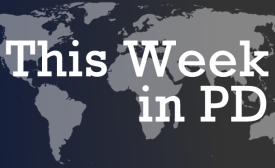poverty
This week, a thousand homeless families in São Paulo reportedly moved into a site just two miles from the opening venue of the World Cup. They were bussed to the site by the Landless Workers' Movement, which says the occupation aims to highlight the failure of government promises to improve social housing.
In 2005, Binyavanga Wainaina published a brilliantly sarcastic essay in Granta called “How to Write About Africa,” advising people on how to sound spiritual and compassionate while writing a book about the continent. “Always use the word ‘Africa’ or ‘Darkness’ or ‘Safari’ in your title,” Wainaina advised.

Tourism and nation branding have the potential to boost a country's soft power and convey values and culture. However, it's not always a win-win situation for governments (or tourists).
Tourism is a money-spinner in Kenya - it is the country's second largest source of income, writes Jamal Osman. Its safaris are world famous, but a recent drop-off in wildlife tourism has given rise to this new type of sightseeing.
For obvious reasons, many Paulistanos still consider this megacity’s decrepit old center a no-go zone. Carjacking and kidnapping gangs preyon motorists at stoplights. Squatterscontrol dozens of graffiti-splattered apartment buildings. Sinewy addicts roam through the streets smoking crack cocaine in broad daylight.
If there are two Brazils, then one of them is here, in a café by the Praça São Salvador, a few blocks from the beach in Rio de Janeiro. Wearing a gray T-shirt, sunglasses and a ring in the shape of a human skull, Alan Fragoso, 27, takes a sip of his caipirinha. Fragoso used to be a sort of Brazilian Don Draper, an advertising man selling products to the nation's emerging consumer class. Then one day he quit. "What I really want is to work with projects I believe in," he says, "not to invest in consumption."
Many objected when Secretary of State John Kerry referred to Latin America as "the backyard" of the United States last April. While his statement may have been intended as an innocuous comment on geography, the implications of his words represent an all too common attitude about our Southerly neighbors that is not only ignorant, but often inaccurate.
President Barack Obama brimmed with optimism after he met with Colombian President Juan Manuel Santos in the White House last December. Obama lauded Colombia’s “tremendous progress” over the past decade and praised Santos for his peace talks with the Revolutionary Armed Forces of Colombia (FARC). He commended Santos’ efforts on human and labor rights, and hailed the “success” of the U.S.-Colombia Free Trade Agreement.







